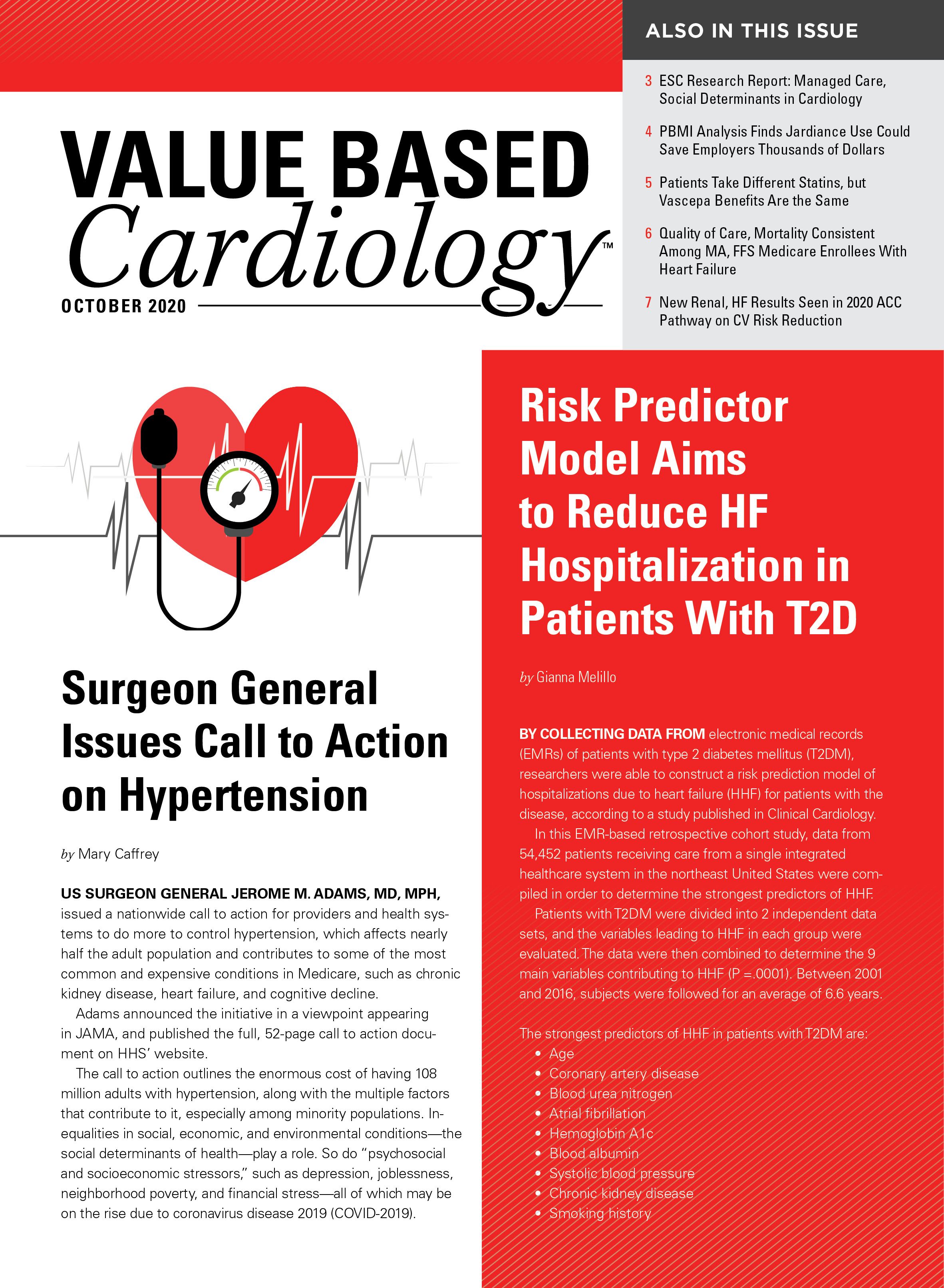- Center on Health Equity & Access
- Clinical
- Health Care Cost
- Health Care Delivery
- Insurance
- Policy
- Technology
- Value-Based Care
Quality of Care, Mortality Consistent Among MA, FFS Medicare Enrollees With Heart Failure
Reports of Medicare Advantage (MA) patients receiving higher-quality care for their cardiovascular disease prompted this comparison study of patients with heart failure enrolled in Medicare fee-for-service plans (FFS) and MA plans.
Reports of Medicare Advantage (MA) patients receiving higher-quality care for their cardiovascular disease prompted an observational, retrospective, cohort study of MA patients with heart failure and their fee-for-service (FFS) enrollee counterparts. The results, published in JAMA Cardiology, show that mortality and the quality of care in both patients groups were consistent for those hospitalized for heart failure.
One-third of Medicare beneficiaries are enrolled in MA plans, the private insurance option for plan participants.
The primary outcomes of the study were in-hospital mortality, discharge disposition, length of stay (LOS) 4 days or less, and 4 heart failure achievement measures for 262,626 patients enrolled in the Get With the Guidelines-Heart Failure (GWTG-HF) registry:
- Receipt of evidence-based β-blockers when indicated
- Angiotensin-converting enzyme inhibitor, angiotensin II receptor blockers, or angiotensin receptor-neprilysin inhibitors at discharge
- Left ventricular function
- Postdischarge appointments by Medicare insurance type
For the 2 groups (MA = 35.6% [93,549]; FFS = 64.4% [169,077]), overall results show that standardized mean differences were less than 10% for age, sex, comorbidities, or objective measures (eg, vital signs, lab values) and for all heart failure achievement measures. Median (interquartile range [IQR]) age was also similar in the groups, at 78 (IQR, 70-85) years for MA enrollees and 78 (IQR, 69-86) years for FFS members.
All patients included in the study had to be 18 years or older; have heart failure; and have Medicare insurance coverage between January 1, 2014, and December 31, 2018; and list FFS Medicare or MA as their only source of payment.
However, discharge to home was more likely to happen for patients in MA vs FFS plans (adjusted odds ratio [aOR], 1.16; 95% CI, 1.13-1.19; P < .001), and they had a lower odds of hospital discharge within 4 days (AOR, 0.97; 95% CI, 0.93-1.00; P = .04). Mortality remained consistent (aOR, 0.98; 95% CI, 0.92-1.03; P = .42) between the groups.
Further analysis produced these results for patients in MA vs FFS plans:
- More likely to have diabetes (47.4% vs 45.4%), hyperlipidemia (59.8% vs 58.3%), peripheral vascular disease (13.0% vs 12.5%), and coronary artery disease (52.0% vs 51.5%)
- Less likely to receive long-term dialysis (3.4% vs 5.0%)
- More often admitted to Midwest hospitals (26.4% vs 21.2%; P < .001)
- Less likely to be discharged to skilled nursing facilities (16.1% vs 17.5%; P < .001) or inpatient rehab (1.9% vs 3.2%; P < .001)
- More likely to receive anticoagulation therapy for atrial fibrillation or atrial flutter (aOR, 1.13; 95% CI, 1.06-1.21; P < .001)
- More likely to receive discharge instructions (aOR, 1.11; 95% CI, 1.03-1.20; P = .008)
Overall mortality was just 2.9% for MA enrollees and 3.0% (P = .05) for FFS enrollees.
“Among patients hospitalized with heart failure, no observable benefit was noted in quality of care or in-hospital mortality between those enrolled in MA vs FFS Medicare, except lower use of post–acute care facilities,” the authors concluded. “As MA continues to grow, it will be important to ensure that participating private plans provide an added value to the patients they cover to justify the higher administrative costs compared with traditional FFS Medicare.”
Study limitations that may restrict generalization of their findings are that hospital participation in the GWTG-HF registry is voluntary, which means those not participating could differ as could their patient demographics; the GWTG-HF registry does not contain data on patient social determinants of health; and not all patients enrolled in MA or FFS Medicare were included in the analysis.
Reference
Figueroa JF, Wadhera WK, Frakt, AB, et al. Quality of care and outcomes among Medicare Advantage vs fee-for-service Medicare patients hospitalized with heart failure. JAMA Cardiol. Published online September 2, 2020. doi:10.1001/jamacardio.2020.3638

What It Takes to Improve Guideline-Based Heart Failure Care With Ty J. Gluckman, MD
August 5th 2025Explore innovative strategies to enhance heart failure treatment through guideline-directed medical therapy, remote monitoring, and artificial intelligence–driven solutions for better patient outcomes.
Listen
